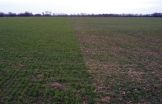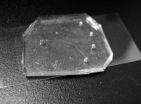(Press-News.org) BOSTON (January 24, 2011) — Genetics in Medicine, the official journal of the American College of Medical Genetics, published this month a paper by Tufts University faculty calling for a moderate, strategic approach to teaching personalized genomic testing in medical school curricula.
For 16 months, a multi-disciplinary group of Tufts University faculty examined ways to improve education regarding personalized genomic testing at Tufts University School of Medicine (TUSM). The genesis of the debate centered on whether medical students should use their own genome for educational purposes.
"We started with the basic agreement that doctors of today and tomorrow need to learn how to use genomic information responsibly and safely, and that this material was lacking in the curriculum," said Diana W. Bianchi, MD, Professor of Pediatrics, Obstetrics and Gynecology at TUSM.
"We thought that introducing a personal genetics component into the medical school curriculum would offer an exceptional opportunity for students to learn first-hand about the process, and would enable them to be trained to evaluate the analytic and clinical validity, as well as the clinical utility, of the data," says David Walt, Robinson Professor of Chemistry at Tufts University School of Arts and Sciences. Walt, a co-founder of Illumina, suggested that the Tufts medical students' own personal genotypes could serve as a backdrop for teaching issues related to clinical implementation, including the potential benefits and harms of these tests.
The faculty group conducted extensive meetings with the school's deans of education and student services to determine how the information might adversely affect students. In particular, they were concerned about the impact on student mental health if an abnormality were discovered.
"We concluded that if an institution is going to offer personalized genetic testing to its trainees, a plan should be made regarding both protection of privacy and follow-up of abnormal tests. Students should be told in advance of testing where to go for counseling regarding abnormal results, and who will pay for such counseling," explained Bianchi.
The TUSM faculty group recommended that curriculum committees explore ways of enriching educational content in the curriculum with genetics, genomics, genome-wide association studies (GWAS) and sequencing using anonymous or publicly accessible genomes. Discussion of the benefits, limitations, and potential harms of such testing should be an integral part of the educational process.
"We strongly advocate that genomic analysis and personalized medicine is a necessity for modern medical school education, both to be able to translate the advances made in genetic analysis and knowledge into improvements in human health and to begin to think of diseases as disruptions in specific pathways. Our experiences illustrate that adding this material to a medical school curriculum is a complex process that deserves careful thought and broad discussion within the academic community," added Walt.
INFORMATION:
About Tufts University School of Medicine
Tufts University School of Medicine is an international leader in innovative medical education and advanced research. The School of Medicine is renowned for excellence in education in general medicine, biomedical sciences, special combined degree programs in business, health management, public health, bioengineering and international relations, as well as basic and clinical research at the cellular and molecular level. Ranked among the top in the nation, the School of Medicine is affiliated with six major teaching hospitals and more than 30 health care facilities. Tufts University School of Medicine undertakes research that is consistently rated among the highest in the nation for its effect on the advancement of medical science.
About Tufts University
Tufts University, located on three Massachusetts campuses in Boston, Medford/Somerville, and Grafton, and in Talloires, France, is recognized among the premier research universities in the United States. Tufts enjoys a global reputation for academic excellence and for the preparation of students as leaders in a wide range of professions. A growing number of innovative teaching and research initiatives span all Tufts campuses, and collaboration among the faculty and students in the undergraduate, graduate and professional programs across the university's schools is widely encouraged.
END
The genome of the fungus that helps mountain pine beetles infect and kill lodgepole pines has been decoded in a University of British Columbia study.
Also known as blue stain fungus for the stain it leaves in the wood of infected trees, Grosmannia clavigera is carried to the host trees by pine beetles and weakens the trees' natural defense system, allowing pine beetles to feed and reproduce in the tree bark. A successful beetle-fungus attack ultimately causes tree death.
Now, researchers from UBC and the BC Cancer Agency's Genome Sciences Centre have conducted a detailed ...
MADISON — Future queen or tireless toiler? A paper wasp's destiny may lie in the antennal drumbeats of its caretaker.
While feeding their colony's larvae, a paper wasp queen and other dominant females periodically beat their antennae in a rhythmic pattern against the nest chambers, a behavior known as antennal drumming.
The drumming behavior is clearly audible even to human listeners and has been observed for decades, prompting numerous hypotheses about its purpose, says Robert Jeanne, a professor emeritus of entomology at the University of Wisconsin-Madison. Many have ...
(Santa Barbara, Calif.) –– A new scientific study shows that debris coverage –– pebbles, rocks, and debris from surrounding mountains –– may be a missing link in the understanding of the decline of glaciers. Debris is distinct from soot and dust, according to the scientists.
Melting of glaciers in the Himalayan Mountains affects water supplies for hundreds of millions of people living in South and Central Asia. Experts have stated that global warming is a key element in the melting of glaciers worldwide.
Bodo Bookhagen, assistant professor in the Department of Geography ...
Careful dating of new dinosaur fossils and volcanic ash around them by researchers from UC Davis and UC Berkeley casts doubt on the idea that dinosaurs appeared and opportunistically replaced other animals. Instead -- at least in one South American valley -- they seem to have existed side by side and gone through similar periods of extinction.
Geologists from Argentina and the United States announced earlier this month the discovery of a new dinosaur that roamed what is now South America 230 million years ago, at the beginning of the age of the dinosaurs. The newly discovered ...
New research led by UC Davis scientists provides insight into why some body organs are more susceptible to cell death than others and could eventually lead to advances in treating or preventing heart attack or stroke.
In a paper published Jan. 21 in the journal Molecular Cell, the UC Davis team and their collaborators at the National Institutes of Health and Johns Hopkins University report that Bax, a factor known to promote cell death, is also involved in regulating the behavior of mitochondria, the structures that provide energy inside living cells.
Mitochondria constantly ...
WEST LAFAYETTE, Ind. - Many of the genes that allow wheat to ward off Hessian flies are no longer effective in the southeastern United States, and care should be taken to ensure that resistance genes that so far haven't been utilized in commercial wheat lines are used prudently, according to U.S. Department of Agriculture and Purdue University scientists.
An analysis of wheat lines carrying resistance genes from dozens of locations throughout the Southeast showed that some give little or no resistance to the Hessian fly, a major pest of wheat that can cause millions of ...
LA JOLLA, CA--Glioblastoma, the most common and lethal form of brain cancer and the disease that killed Massachusetts Senator Ted Kennedy, resists nearly all treatment efforts, even when attacked simultaneously on several fronts. One explanation can be found in the tumor cells' unexpected flexibility, discovered researchers at the Salk Institute for Biological Studies.
When faced with a life-threatening oxygen shortage, glioblastoma cells can shift gears and morph into blood vessels to ensure the continued supply of nutrients, reports a team led by Inder Verma, Ph.D., ...
WEST LAFAYETTE, Ind. - Purdue University researchers have reproduced portions of the female breast in a tiny slide-sized model dubbed "breast on-a-chip" that will be used to test nanomedical approaches for the detection and treatment of breast cancer.
The model mimics the branching mammary duct system, where most breast cancers begin, and will serve as an "engineered organ" to study the use of nanoparticles to detect and target tumor cells within the ducts.
Sophie Lelièvre, associate professor of basic medical sciences in the School of Veterinary Medicine, and ...
Baltimore, Md. (January 24, 2011) – A research effort designed to prevent the introduction of viruses to blue crabs in a research hatchery could end up helping Chesapeake Bay watermen improve their bottom line by reducing the number of soft shell crabs perishing before reaching the market. The findings, published in the journal Diseases of Aquatic Organisms, shows that the transmission of a crab-specific virus in diseased and dying crabs likely occurs after the pre-molt (or 'peeler') crabs are removed from the wild and placed in soft-shell production facilities.
Crab ...
MAYWOOD, Ill. -- The American Association of Clinical Endocrinologists (AACE) has released new medical guidelines for the diagnosis and treatment of postmenopausal osteoporosis. Loyola physician Pauline Camacho, MD, was part of a committee that developed the guidelines to manage this major public health issue.
These recommendations were developed to reduce the risk of osteoporosis-related fractures and improve the quality of life for patients. They explain new treatment options and suggest the use of the FRAX tool (a fracture risk assessment tool developed by the World ...



